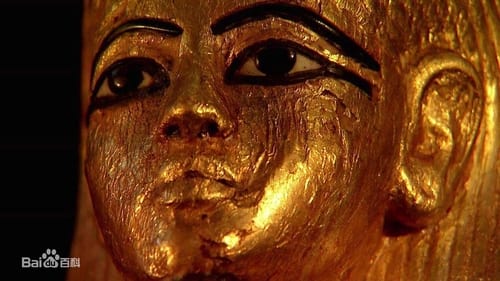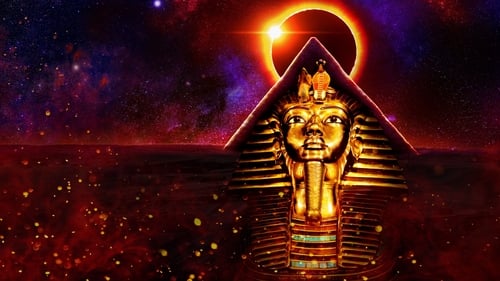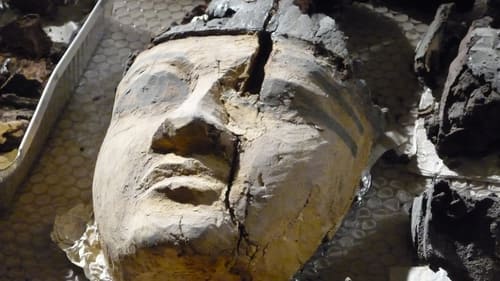Zahi Hawass
Рождение : 1947-05-28, Damietta, Egypt
История
Zahi Hawass (Arabic: زاهي حواس; born May 28, 1947) is an Egyptian archaeologist, an Egyptologist, and former Minister of State for Antiquities Affairs. He has also worked at archaeological sites in the Nile Delta, the Western Desert, and the Upper Nile Valley.
Hawass has received widespread publicity internationally, and was the subject of a reality television series in the United States, Chasing Mummies. His views and links to business ventures and the Mubarak regime have engendered controversy. In connection with the awarding of a gift shop contract at the Egyptian Museum and alleged smuggling of antiquities, he was sentenced to a prison term, which was later lifted.

Self
Egyptian archeologists dig into history, discovering tombs and artifacts over 4,000 years old as they search for a buried pyramid in this documentary.

Self
With over 60 tombs, the Valley of the Kings is the most-famous burial ground on Earth. In the biggest Egyptian excavation ever, a team of archaeologists led by Zahi Hawass heads into the Western Valley to hunt for evidence of an undiscovered tomb.

Self - Friend
Several high-budget epic films became Omar Sharif (1932-2015) a film star. He was an actor, but also a bridge player, a womanizer, a bon vivant; he was a man full of contradictions, who enjoyed card games more than movies; he was an eternal nomad who spent half his life in a hotel.

Self - Supreme Council of Antiquities
For 45 centuries, the Great Sphinx has cast its enigmatic gaze over Egypt's Giza Plateau. The biggest and oldest statue in a land of colossal ancient monuments, its scale is staggering: The mighty head towers as tall as the White House, while its body is nearly the length of a football field. This strange half-human, half-lion image has inspired countless fantastic theories about its origins. How was it built, and who or what does it represent? Surprisingly, the scribes of the period when it was built—during Egypt's Old Kingdom—passed over it in silence. Adding to the mystery, archeologists found that its creators abruptly discarded their tools and abandoned the Sphinx when it was nearly complete. Searching for clues, NOVA's expert team of archeologists, including Mark Lehner, director of Ancient Egypt Research Associates, carries out eye-opening experiments.

Self
A study of the ruined Egyptian pyramid of the 4th dynasty pharaoh Djedefre, including evidence from a ten-year excavation which supports new theories about his reign and the pyramid's importance.

Self - Host
Dr. Zahi Hawass and a team of archaeologists use Egypt's 10 most important discoveries to paint a picture of Ancient Egyptian civilization and reveal the people who developed many of the disciplines that rule the world today.

Self
It is one of Egypt's enduring mysteries. What happened to Nefertiti and her husband, Akhenaten - the radical king, and likely father of King Tut? In a dark and mysterious tomb located in the Valley of the Kings, there is a small chamber with two mummies without sarcophagi or wrappings. At times, both have been identified as Queen Nefertiti by scholars, filmmakers and historians. But the evidence has been circumstantial at best.

Himself (as Dr. Zahi Hawass)
American archeologists have found a new tomb in the desert valley. This is the first find of this magnitude since King Tutankhamun's tomb was uncovered in 1922, according to Egypt's Supreme Council of Antiquities. Called KV 63 - it is the 63rd discovered since the valley was first mapped - the new, intact tomb was found just 16 feet away from King Tut's resting place. A team of archeologists led by Otto Schaden discovered the tomb by accident while conducting "routine digs" on the nearby tomb of King Amenmesses, a 19th Dynasty pharaoh. Explore the wonders of the magnificent lost era.

Self
Twenty-five hundred years before the reign of Julius Caesar, the ancient Egyptians were deftly harnessing the power of engineering on an unprecedented scale. Egyptian temples, fortresses, pyramids and palaces forever redefined the limits of architectural possibility. They also served as a warning to all of Egypt's enemies-that the world's most advanced civilization could accomplish anything. This two-hour special uses cinematic recreations and cutting-edge CGI to profile the greatest engineering achievements of ancient Egypt, and the pharaohs and architects who were behind them. Includes Djoser's Step Pyramid at Saqqara, Senusret's Nubian Superfortresses, Hatshepsut's Mortuary Temple at Dier el-Bahari, Akhenaten's city at Amarna, and the temples of Ramesses the Great at Abu Simbel.

Himself / Egyptologist
As part of a high-tech forensic probe into the demise of Egyptian Pharaoh Tutankhamun, scientists use X-rays and CT scans as they attempt to reach a conclusion about just how this famed king died. In addition, they explore the mysterious curse on explorers linked to Tut's tomb excavation.

Himself
Maury Povich hosts this exploration of Egypt's pyramid of Khamerernebty II and the unopened Tomb of the Unknown by Dr. Zahi A. Hawass, Undersecretary of State for Egypt's Giza Plateau. Also: an examination of the mummy Nefer in Saqqara.

Maga
Кто построил пирамиды? В чем заключались загадки мумифицирования? Какие сокровища брали с собой в загробную жизнь и почему? Столетиями египетские фараоны берегли эти тайны… до настоящего момента. Отправьтесь в страну загадок и понаблюдайте за усилиями археологов, пытающихся понять, как были построены пирамиды. На ваших глазах ученые сделают открытие, выяснив, как сохранялись тела фараонов, реконструировав древний ритуал мумифицирования. И будьте рядом, когда камеры проникнут в древний подземный склеп, где покоится загадочный корабль фараона Куфу — великолепное судно, на котором он отправился в вечность.

Self - Egyptologist
A century ago, archaeologist Howard Carter discovered the intact tomb of the boy king, Tutankhamun. Now, legendary archaeologist Dr. Zahi Hawass has uncovered a lost golden city that holds the secrets of King Tut's final days and Egypt's Golden Age.







